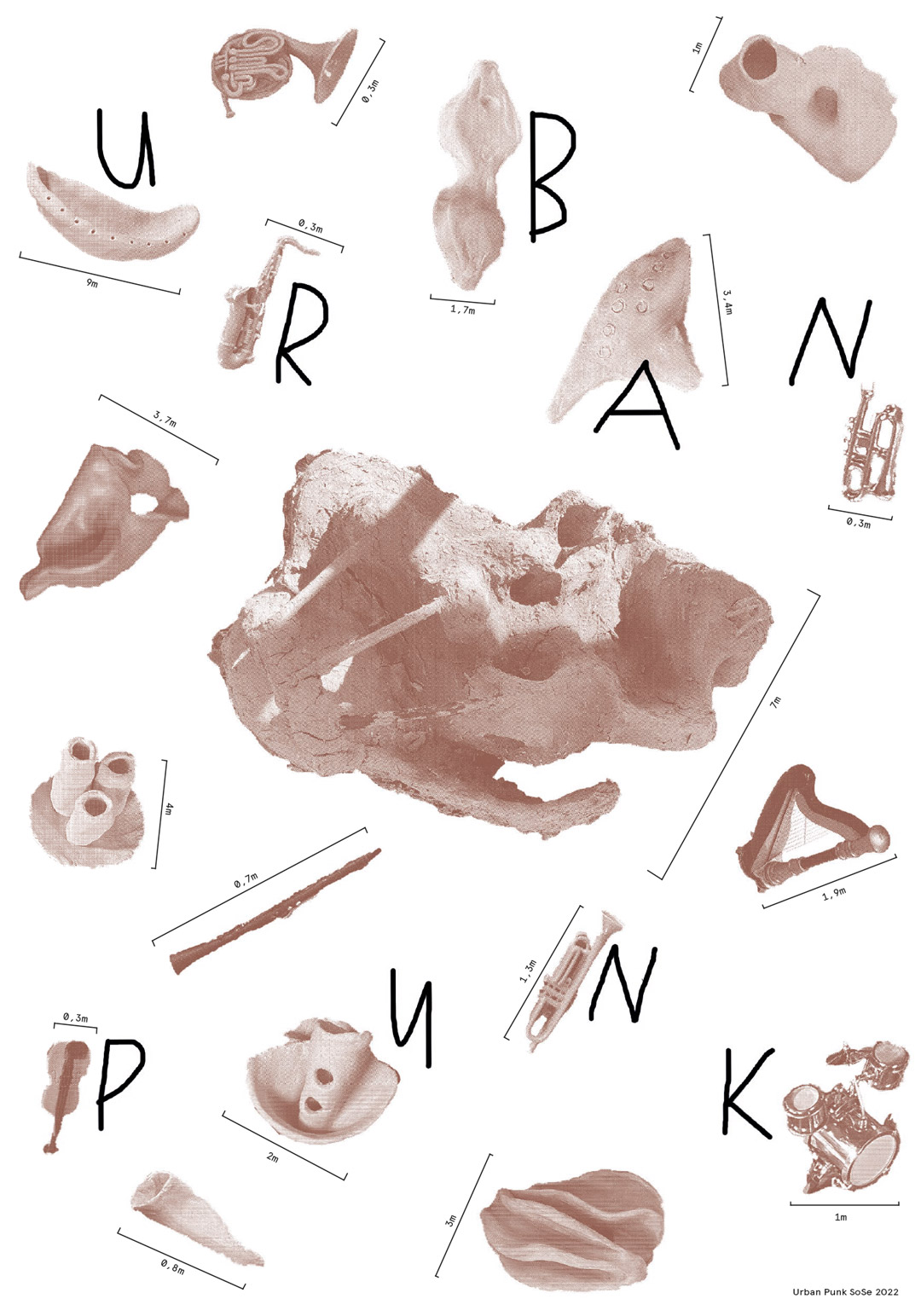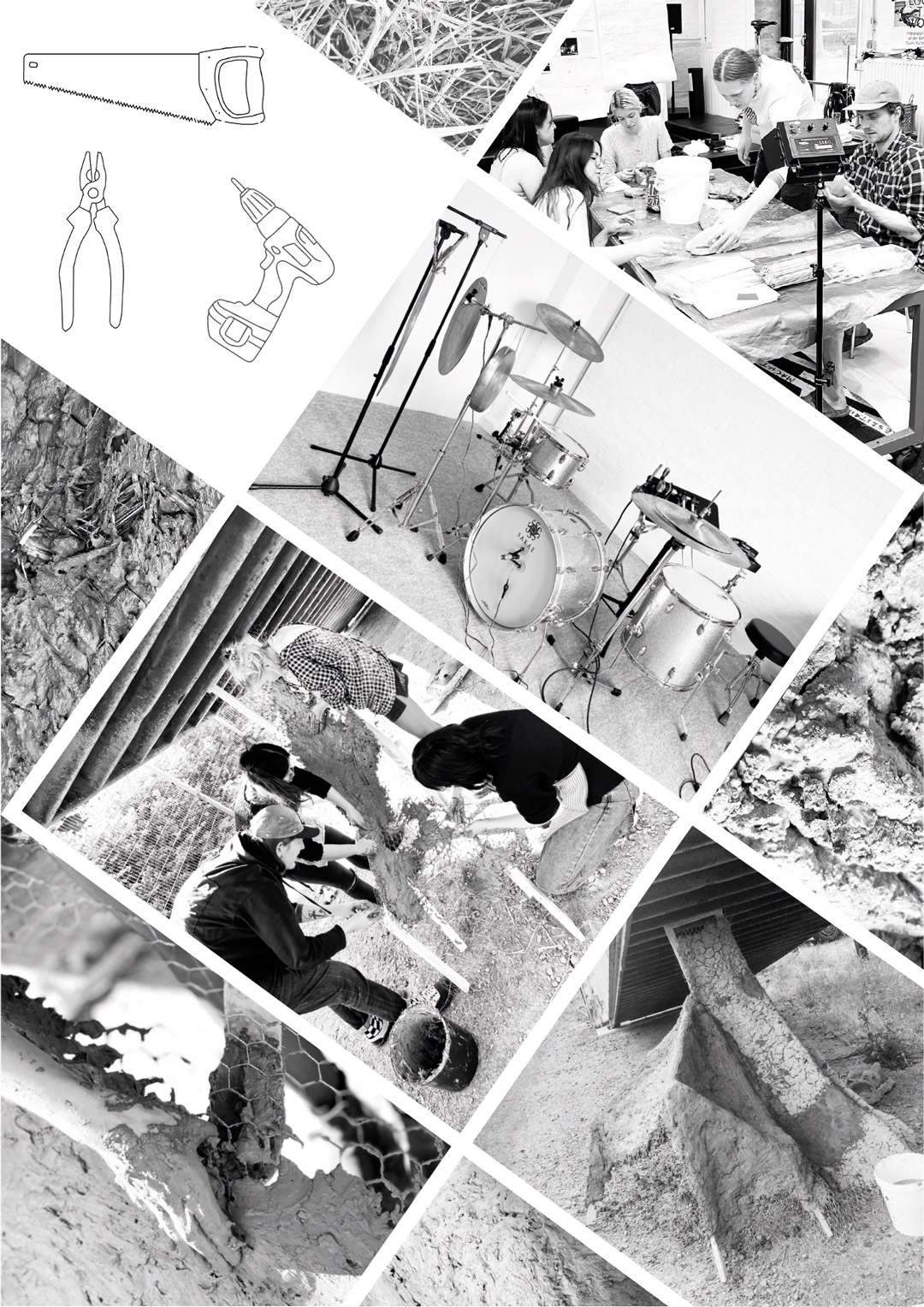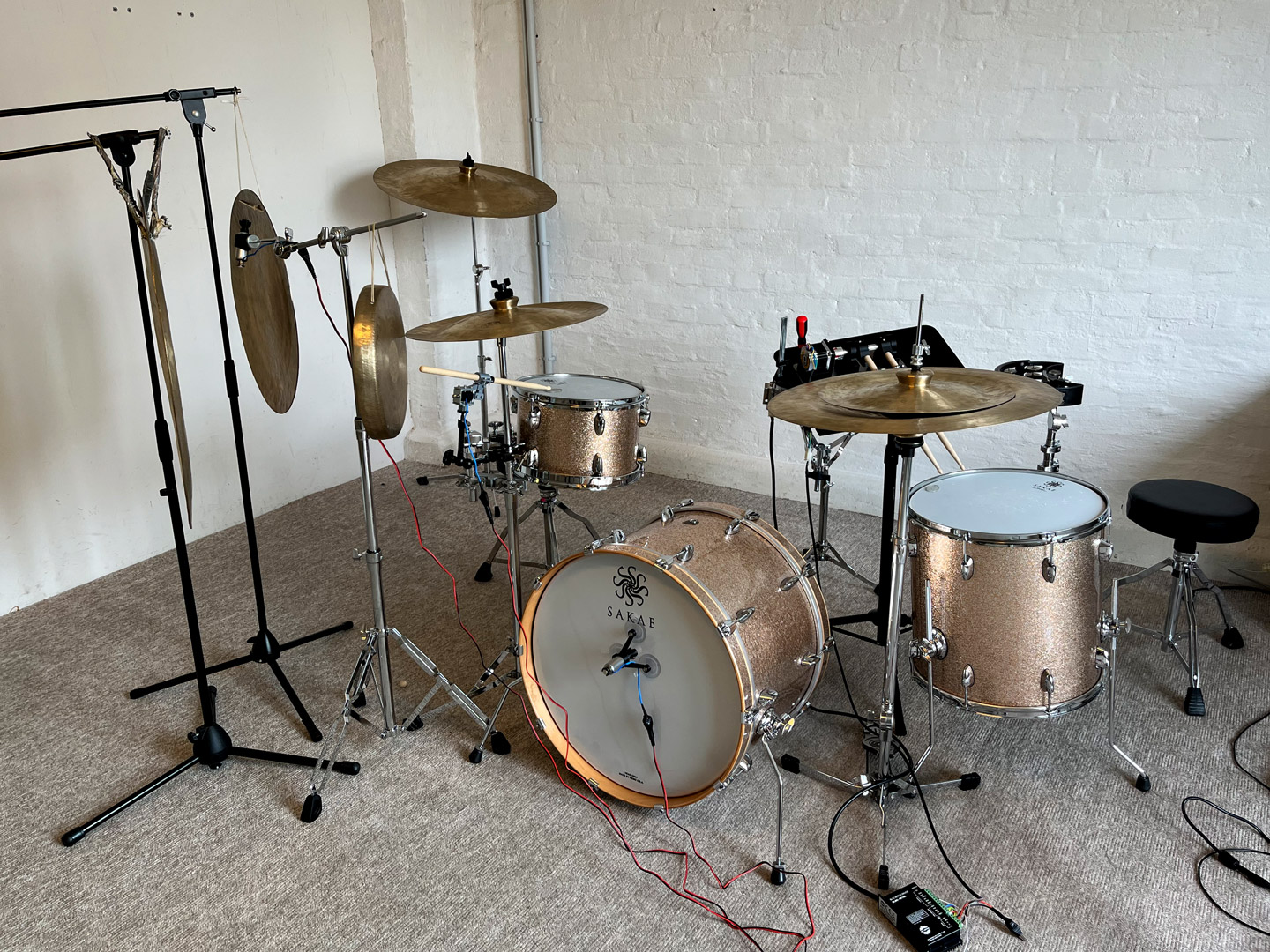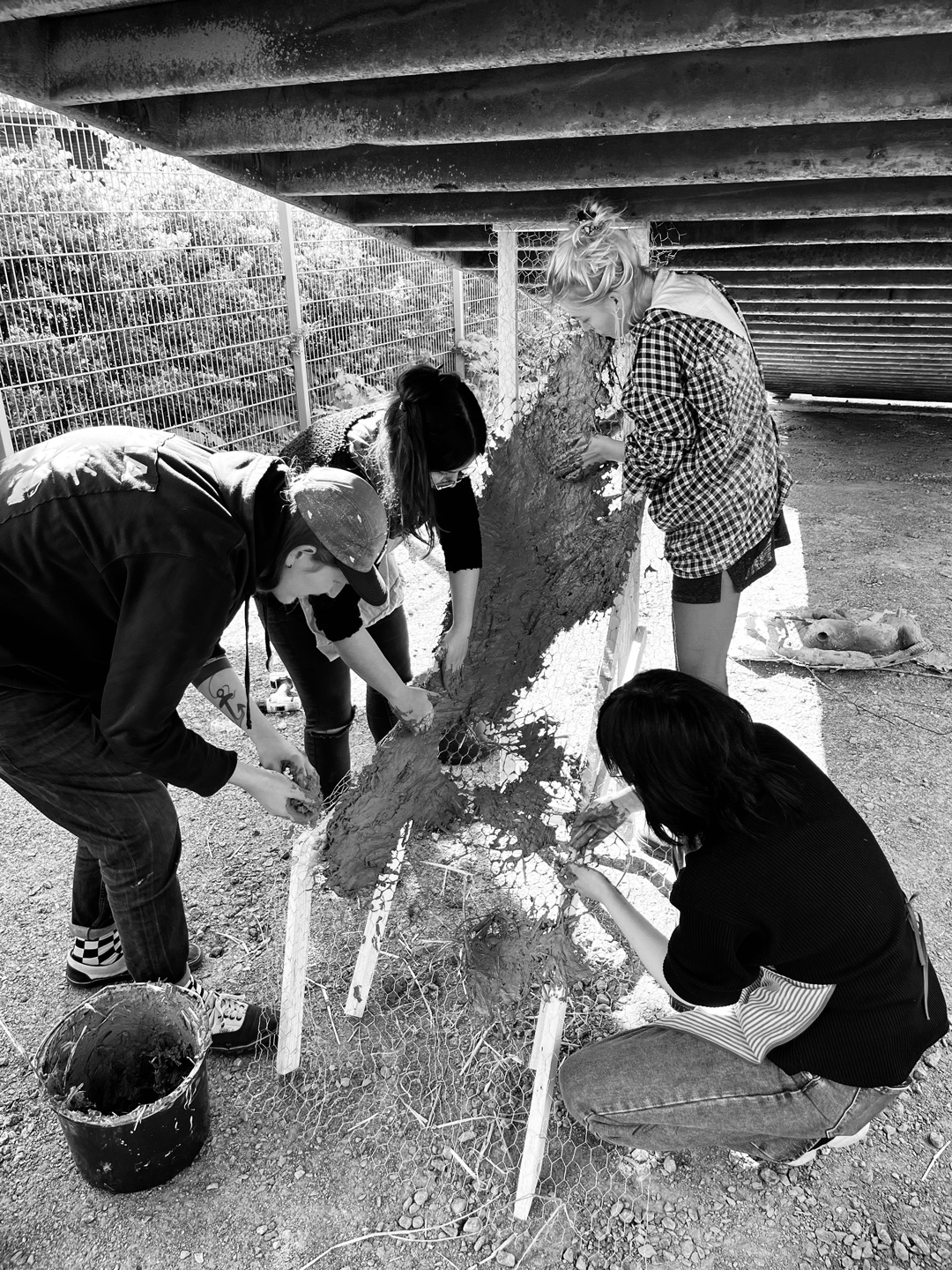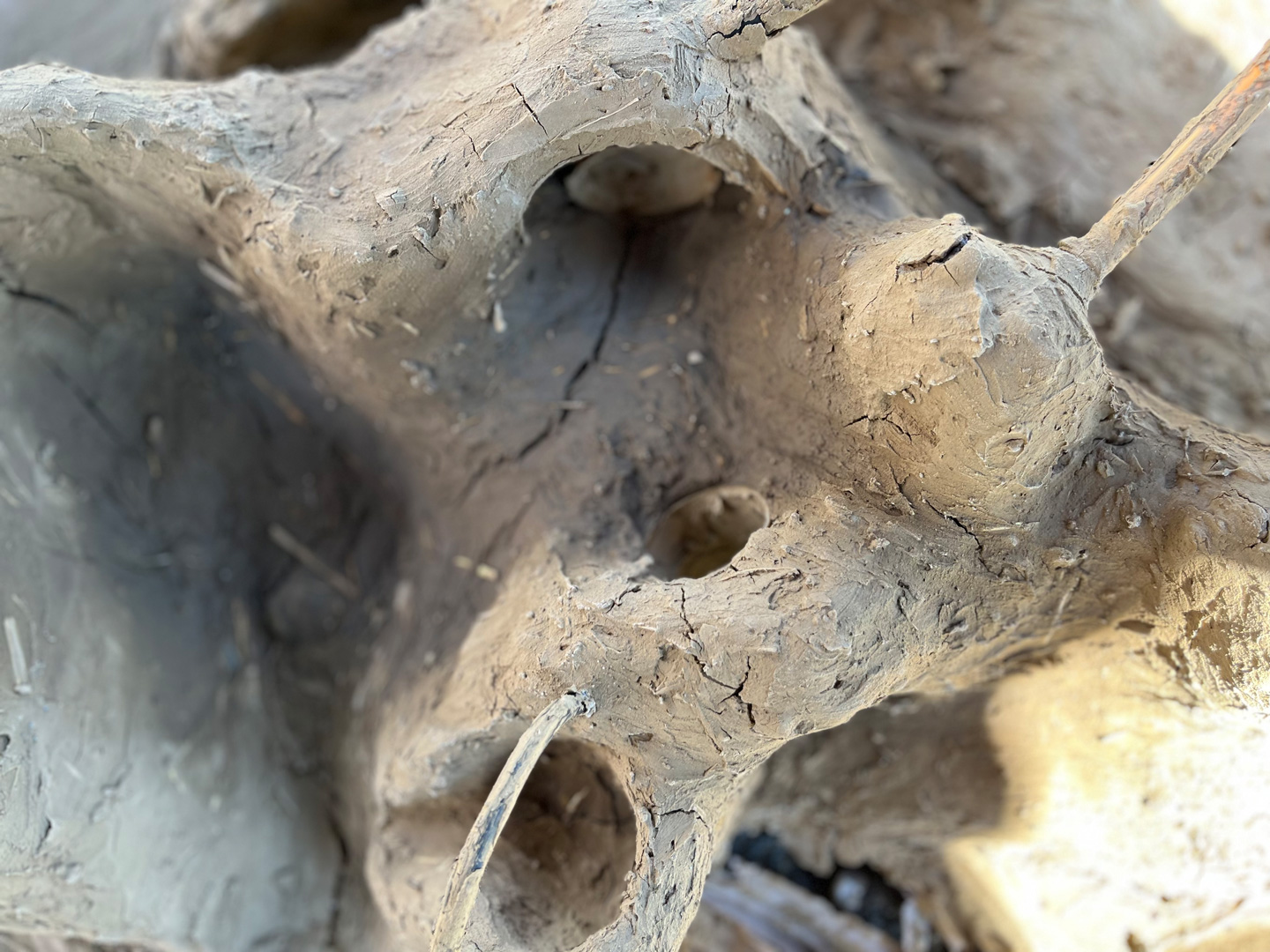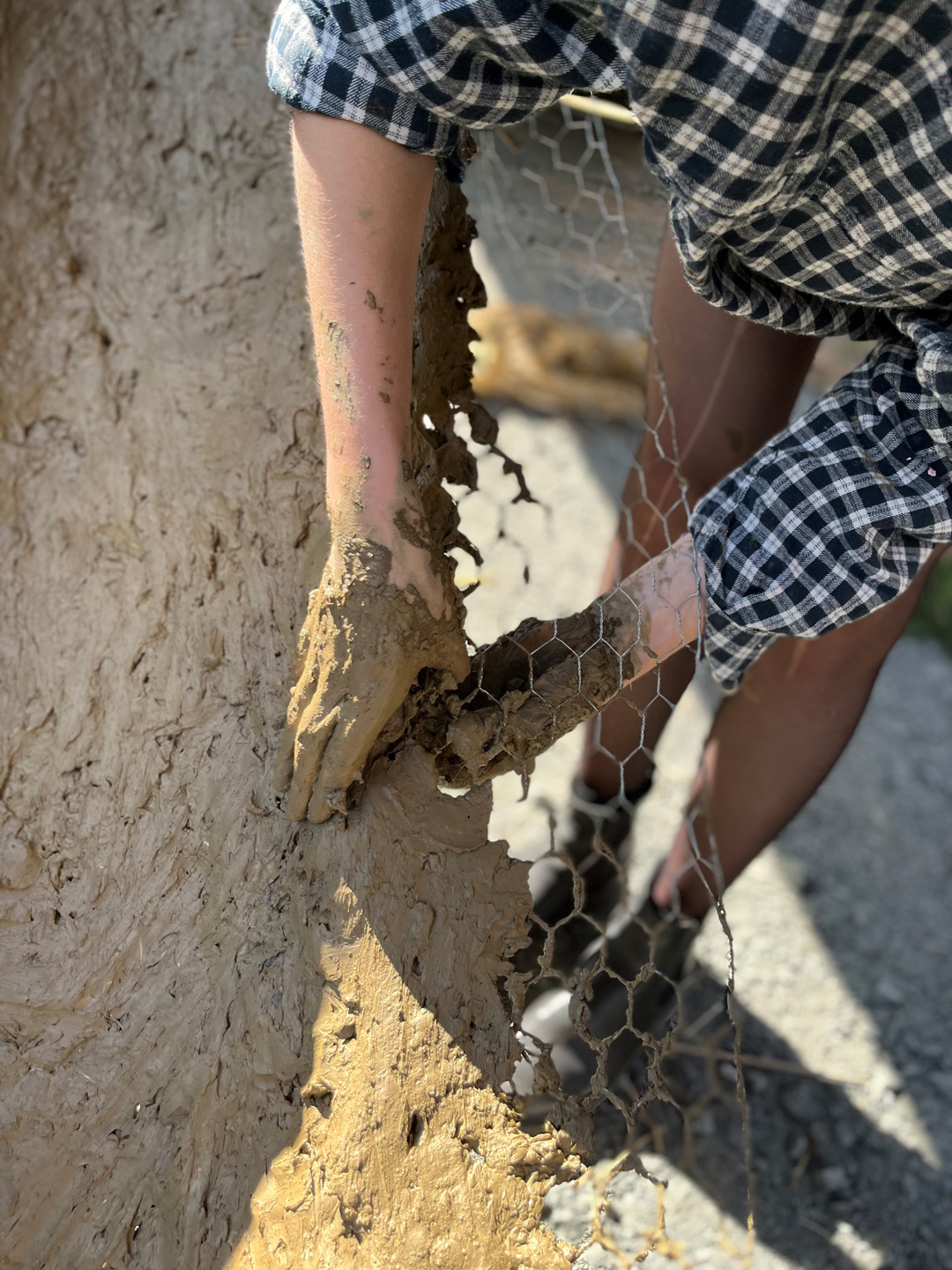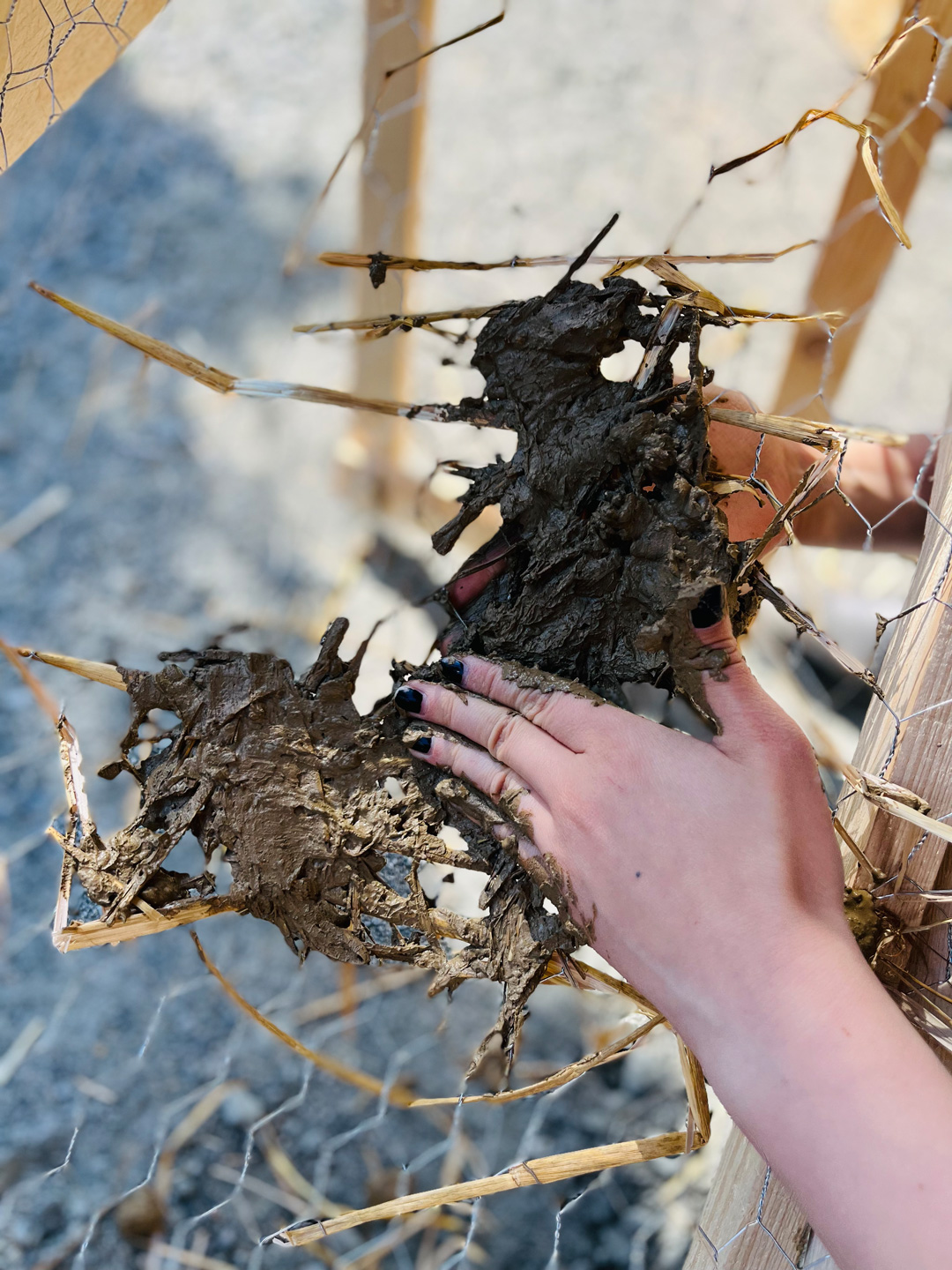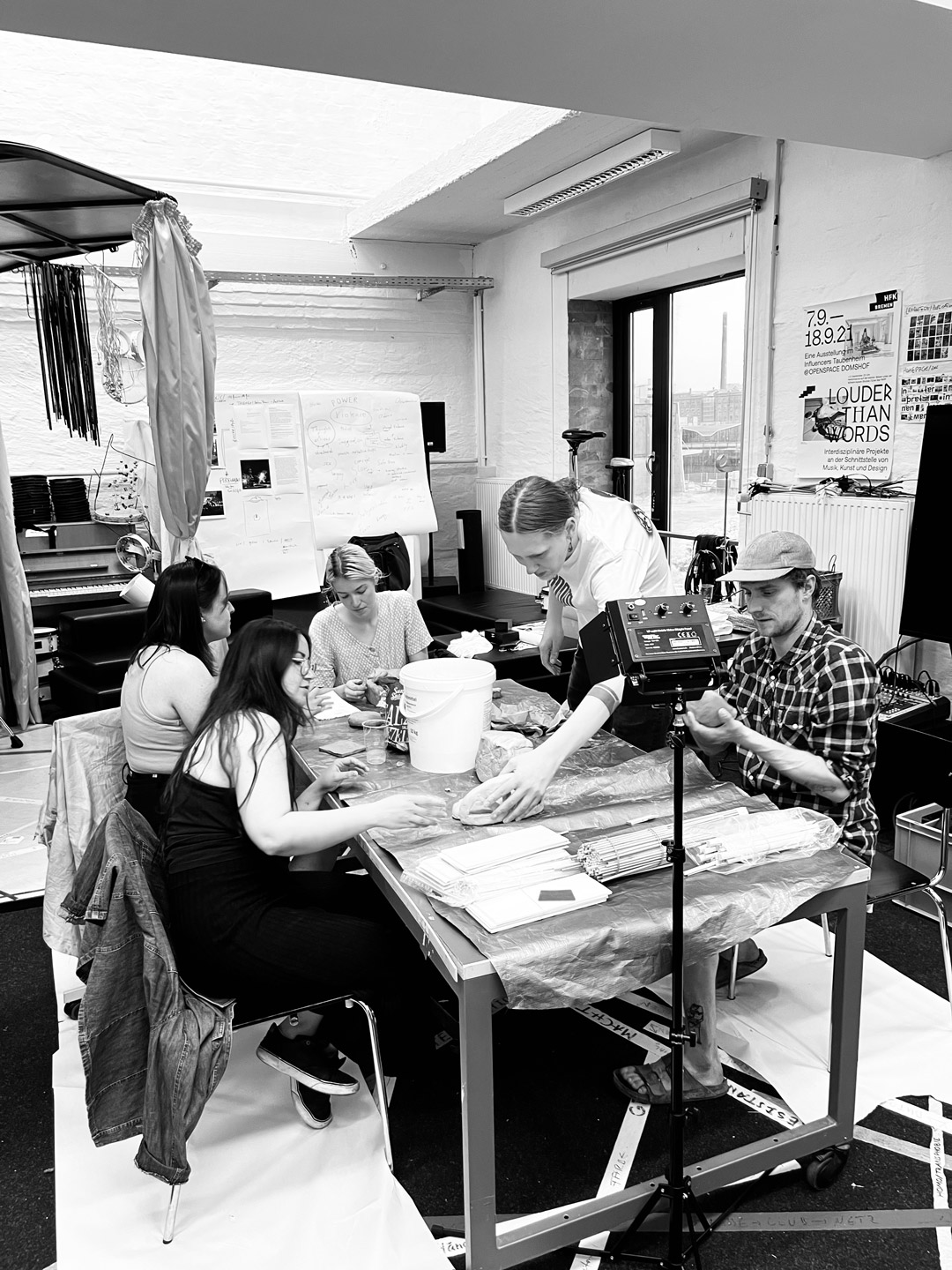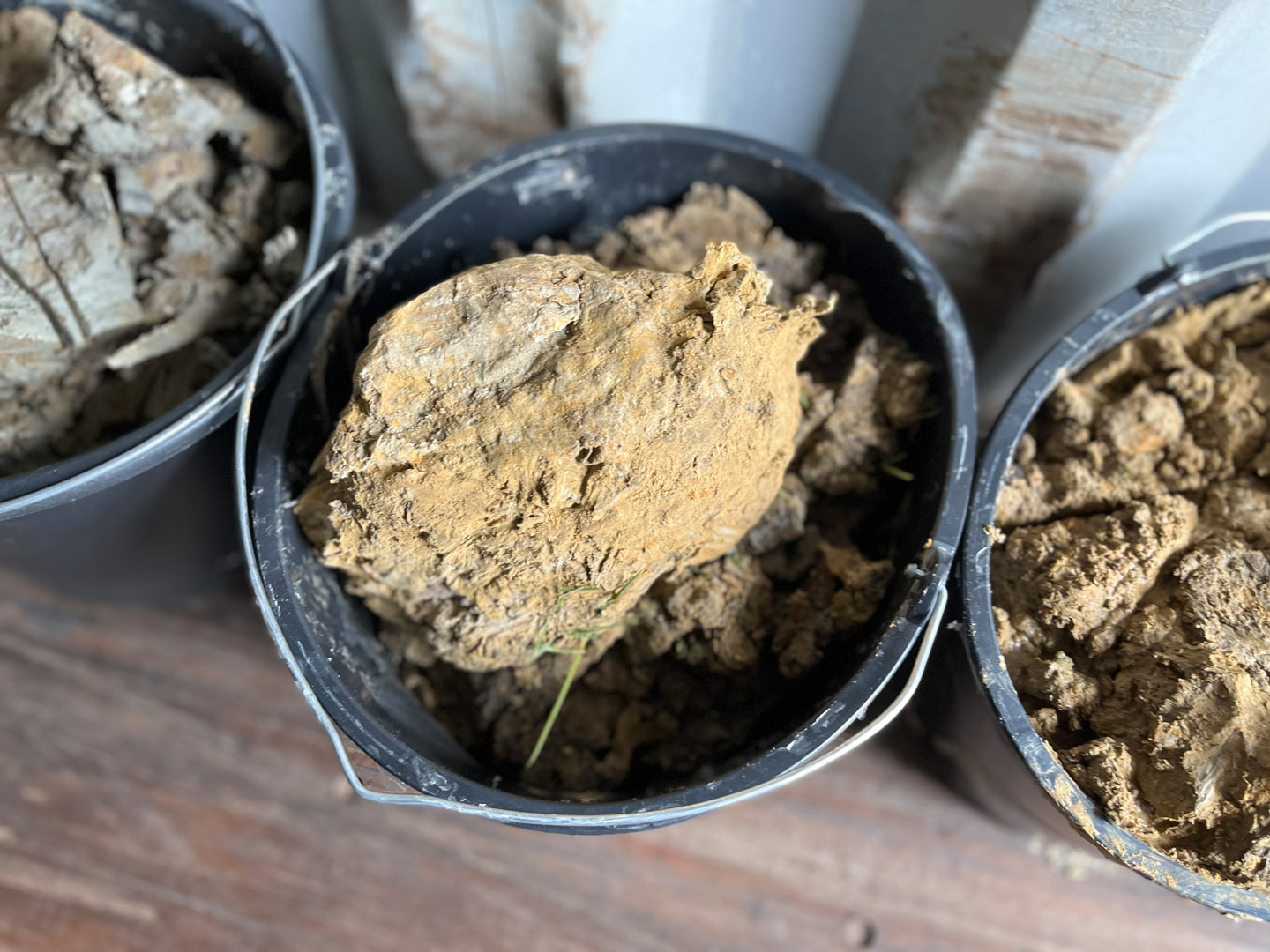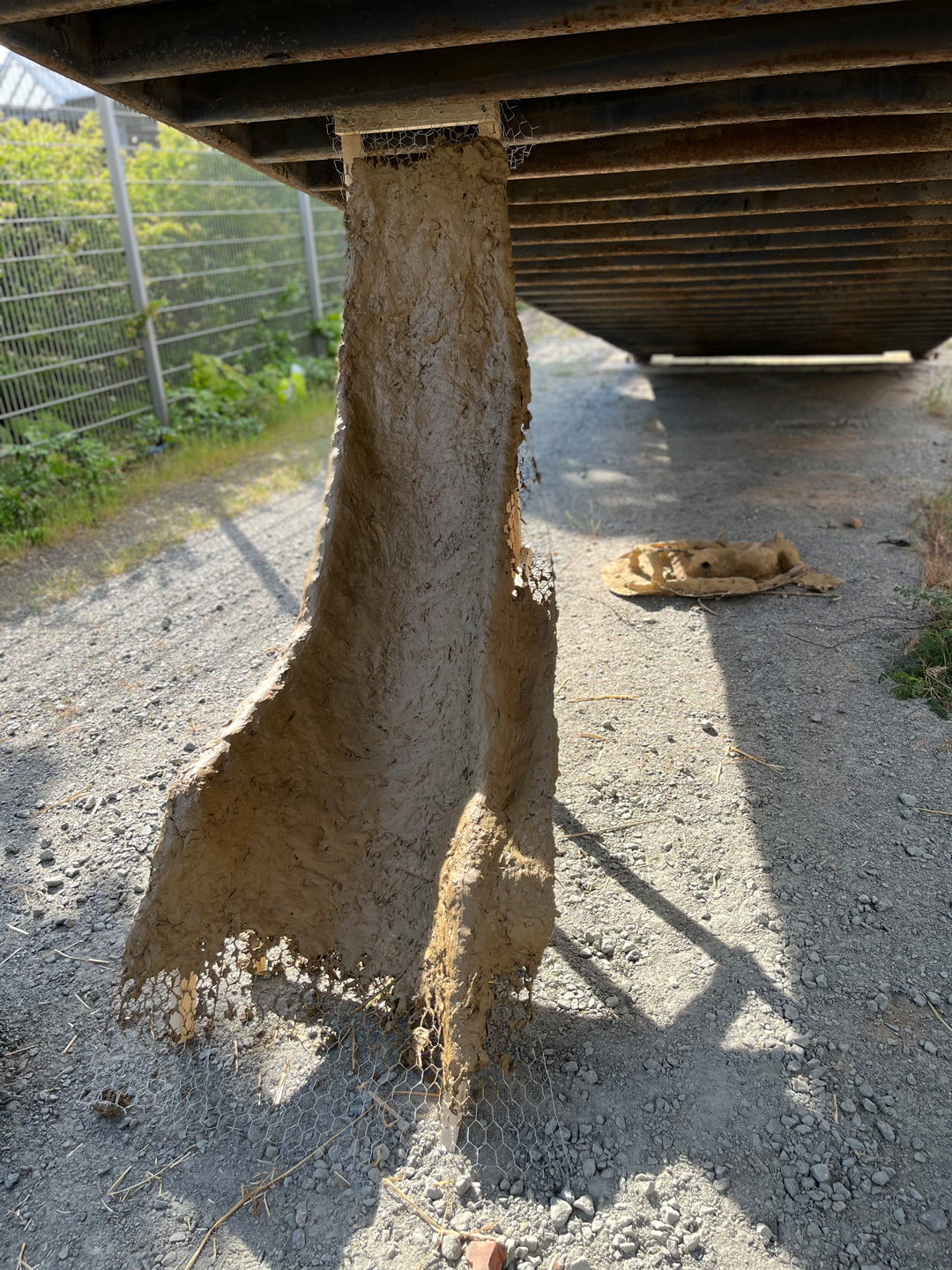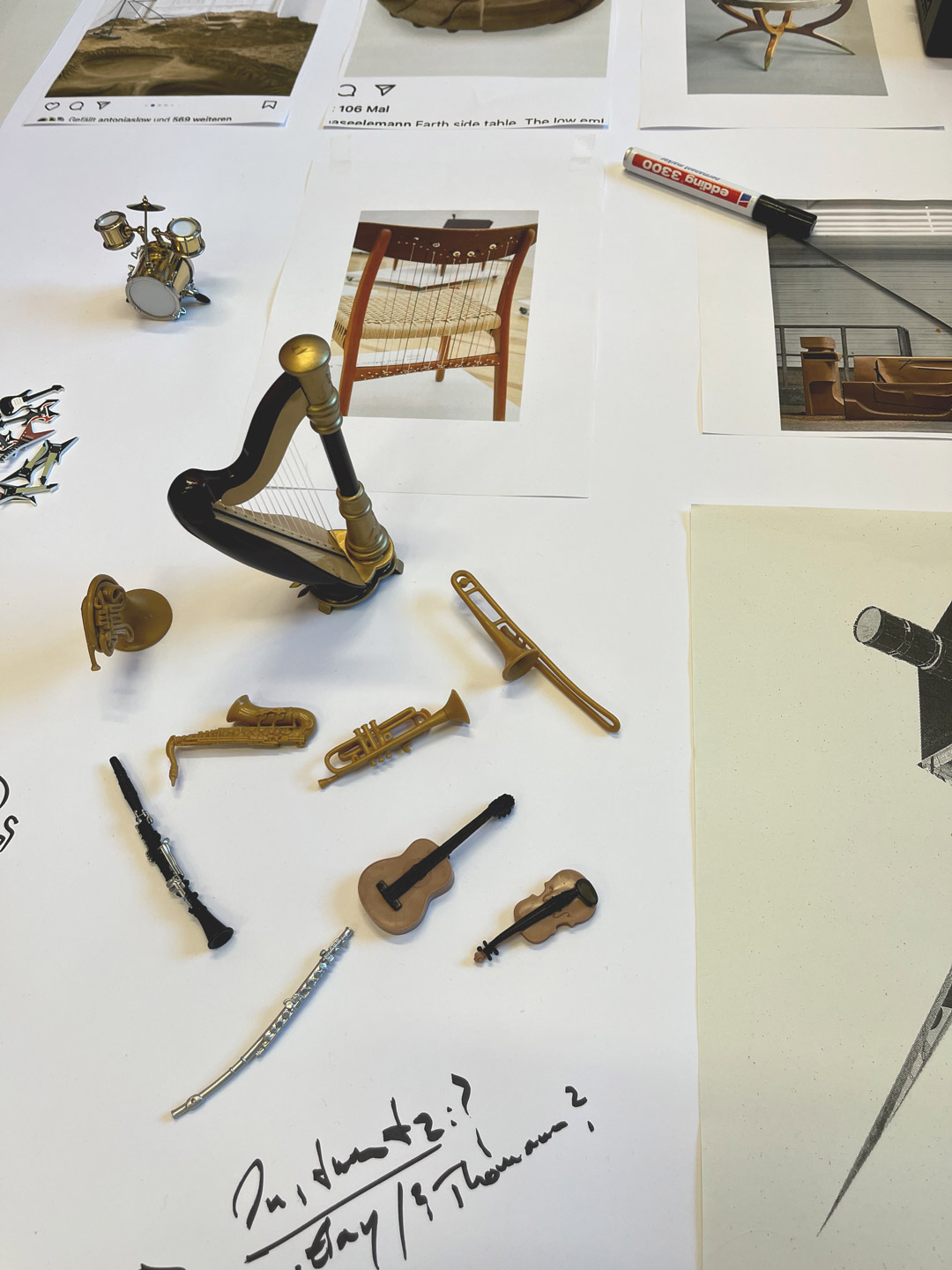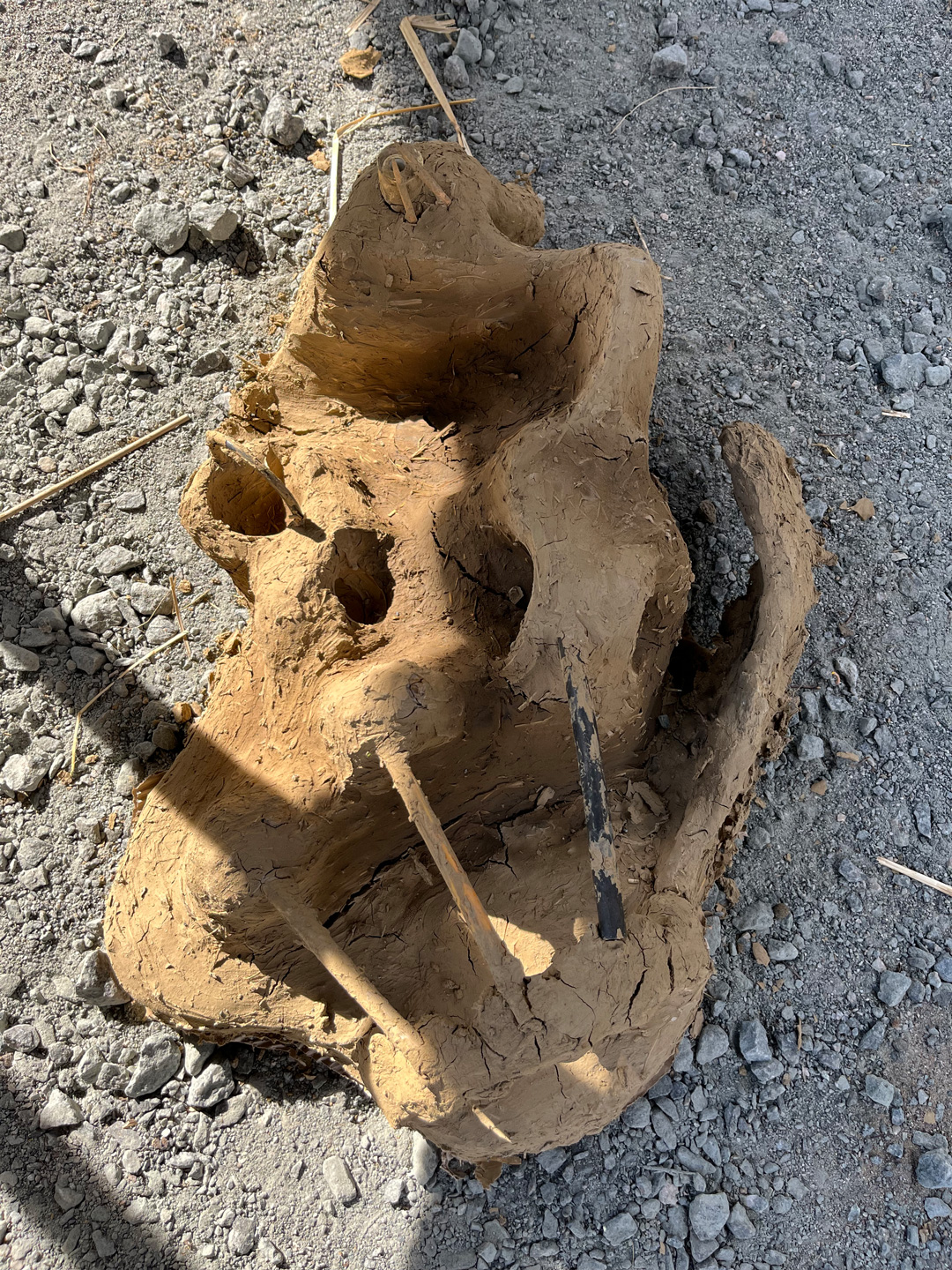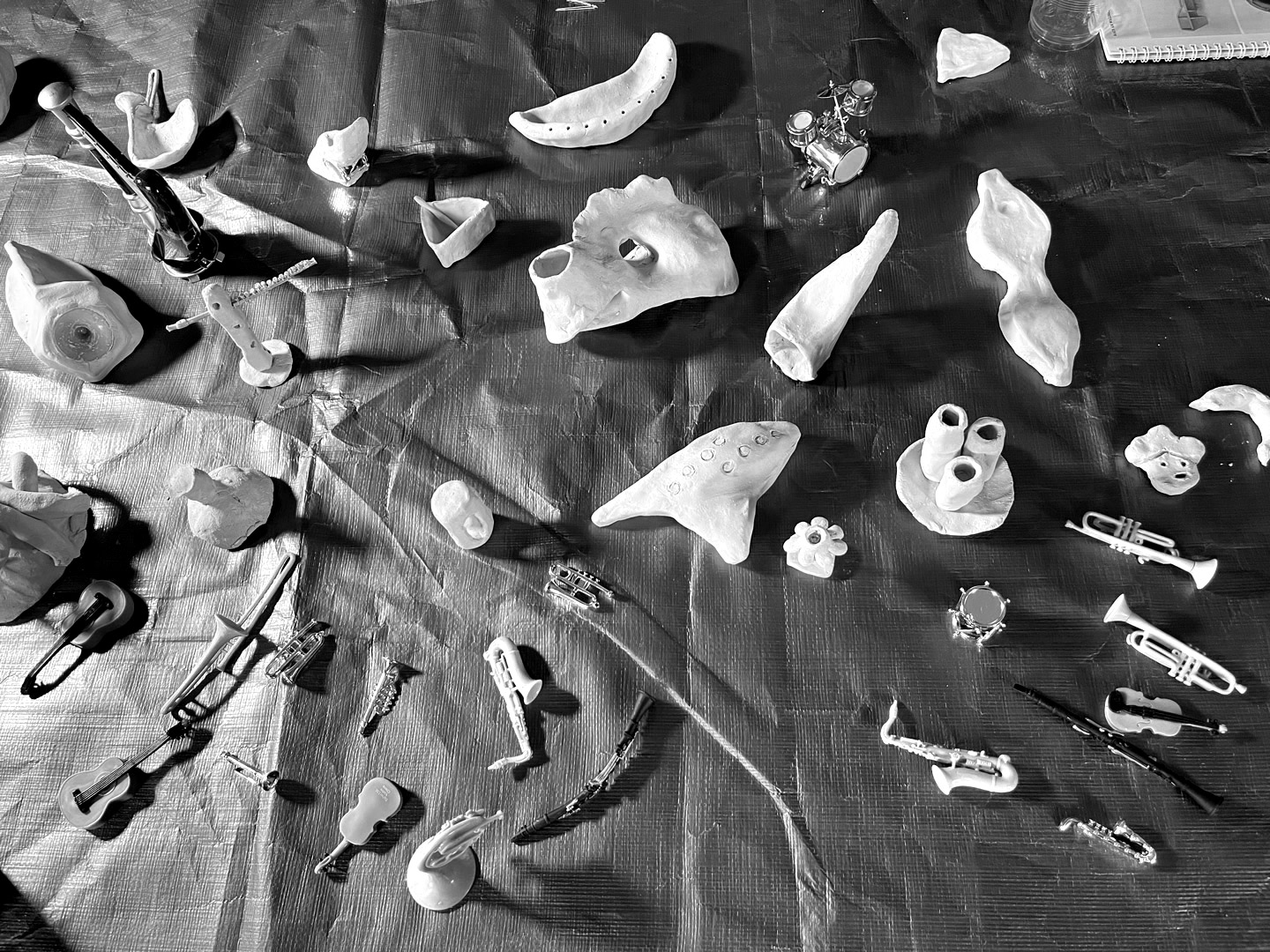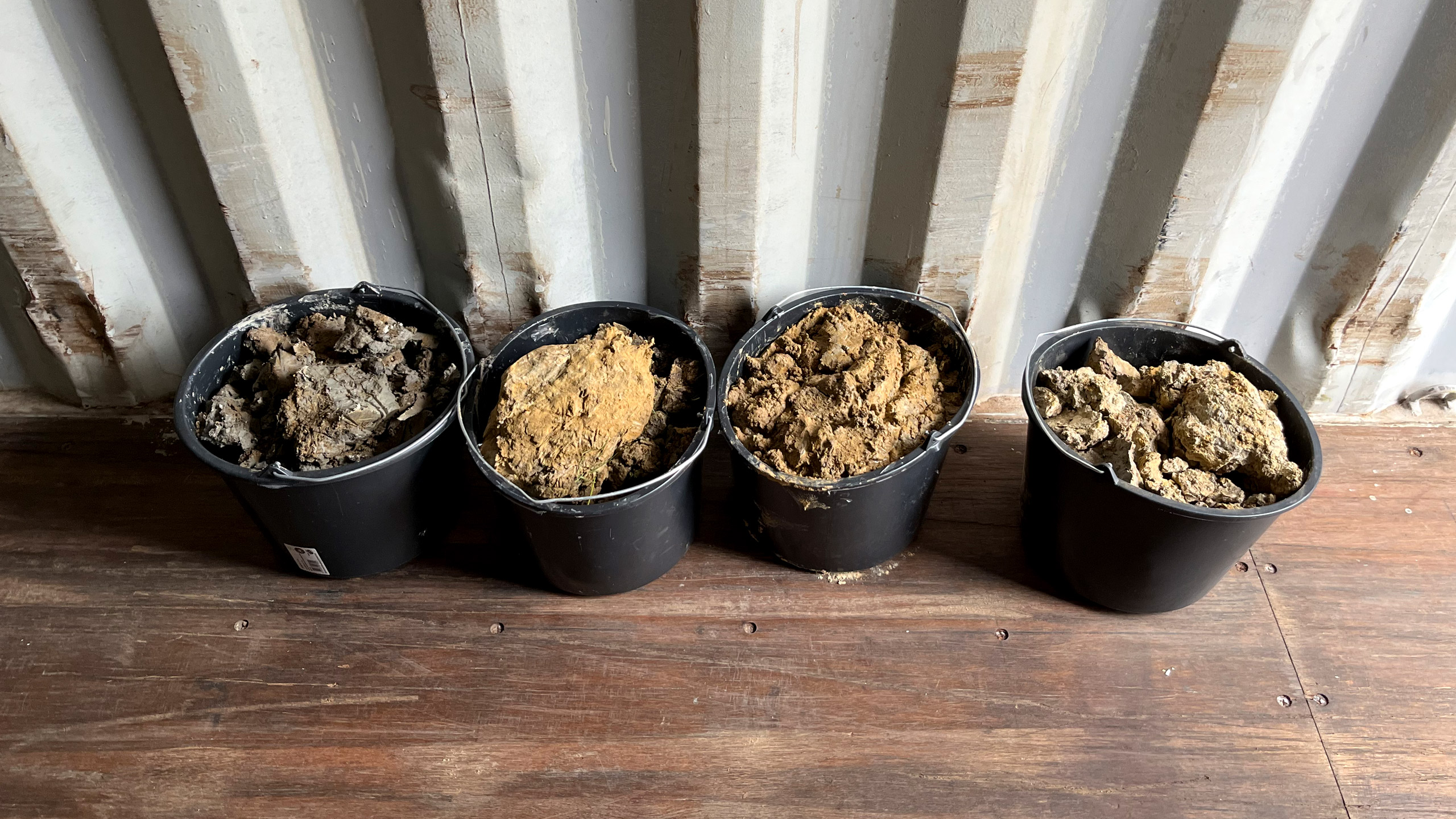
Urbanpunk — Musique d’ameublement
Work in Progress: Klingende Möbel und Musik für den Gemeinschaftsgarten
Credits
Tutor: Sören Sewtz
Teilnehmer*innen: Pia Brand, Natalia Maria Santacruz Torre, Lena Ludwig, Nikita Scheffler, Lena Heinze, Li Ziyi, Maria Ricarda Rassow‑Jütte
Poster: Pia Brand
Urbanpunk — Musique d’ameublement
english
Work in Progress: Sounding furniture and music for the community garden
In this course we develop musical actions, performances and musical instruments for the community garden of the HfK Bremen. During the winter semester furniture for the community garden was created in a course with Prof. Alexander Sahoo, which we now want to expand and rebuild into instruments and sounding bodies. At the centre of our course is the thesis that the garden can be a place of subversion and retreat, and that it eludes iconographic attributions of domination by running wild. Our conception of the garden can be understood as a counter-design to the historical idea of an architecturally designed garden that served solely to stage one’s own claims to power, for example at the court of the king.
Copying and copying as creative techniques
At the centre of our approach to music for the community garden are creative techniques that are not allowed in conventional school contexts: copying and plagiarising. In artistic contexts, however, the repetition of already existing performances, models, music and artworks as appropriation art can be a practice of appropriation and reinterpretation, in which not least marginalised groups and repressed voices make themselves heard and assert themselves politically.
Basically, we assume that every form of repetition creates difference and shifts the frameworks and contexts in which we operate. In music, we know stylistic copying as an exercise that attempts to imitate a musical epoch or a composer as authentically as possible in a rather neutral and even appreciative way, unlike parody or plagiarism.
Translation: Adrianna Liedtke
Work in Progress: Klingende Möbel und Musik für den Gemeinschaftsgarten
In diesem Kurs entwickeln wir musikalische Aktionen, Performances und Musikinstrumente für den Gemeinschaftsgarten der HfK Bremen. Im Wintersemester sind in einem Kurs bei Prof. Alexander Sahoo Möbel für den Gemeinschaftsgarten entstanden, die wir nun zu Instrumenten und Klangkörpern erweitern und umbauen wollen. Zentrum unseres Kurses ist die These, dass der Garten ein Ort der Subversion und des Rückzugs sein kann und sich herrschaftsikonografischen Zuschreibungen durch Verwilderung entzieht. Unsere Konzeption des Gartens kann als Gegenentwurf der historischen Idee eines architektonisch angelegten Gartens verstanden werden, der einzig zur Inszenierung eigener Machtansprüche beispielsweise am Hofe des Königs diente.
Kopieren und Abschreiben als kreative Techniken
Im Zentrum unserer Herangehensweise an Musik für den Gemeinschaftsgarten stehen kreative Techniken, die im konventionellen schulischen Kontext eigentlich nicht erlaubt sind: das Abschreiben und Kopieren. In künstlerischen Kontexten hingegen kann das Wiederholen von schon bestehenden Performances, Vorbildern, Musik und Kunstwerken als Appropriation Art eine Praxis der Aneignung und Neuinterpretation sein, in dem sich nicht zuletzt marginalisierte Gruppen und verdrängter Stimmen Gehör verschaffen und sich politisch behaupten. Grundsätzlich gehen wir dabei davon aus, dass jede Form der Wiederholung Differenz erzeugt und die Rahmenbedingungen und Kontexte, in denen wir agieren, verschiebt. In der Musik kennen wir die Stilkopie als eine Übung, die eher neutral und anders als die Parodie oder das Plagiat, sogar wertschätzend versucht, eine Musikepoche oder eine*n Komponist*in möglichst authentisch nachzuahmen.
Vgl.: Aus dem → Lehrveranstaltungsverzeichnis
